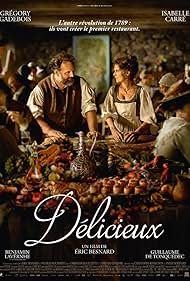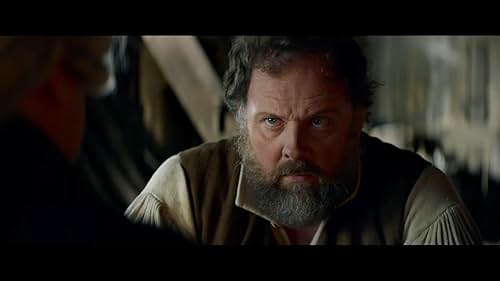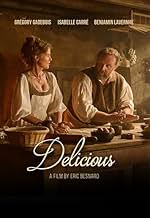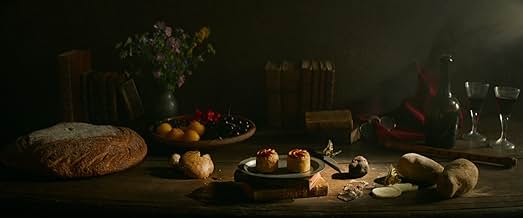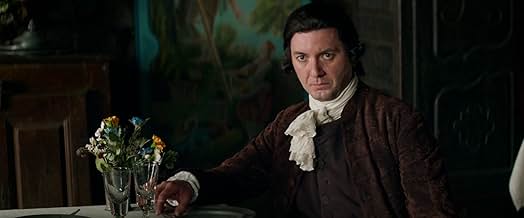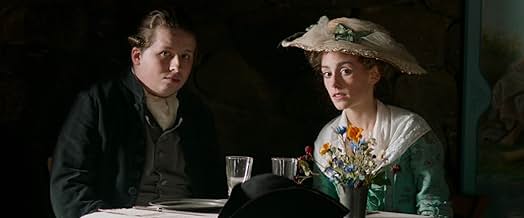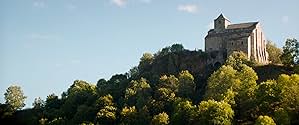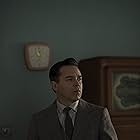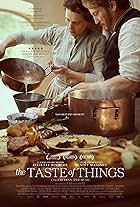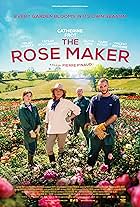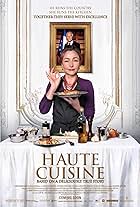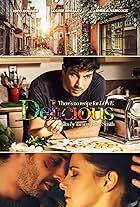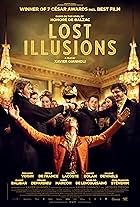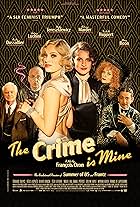It's set in 1789 France just before the Revolution in a rural fictional dukedom of Chamfort. It tells the story of the invention of the modern restaurant concept in a time when only the nobility ate well.
Pierre Manceron (Grégory Gadebois) is the master chef for Le duc de Chamfort (Benjamin Lavernhe). Chamfort loves Manceron's cooking, but insists that he stick to set menus and not be creative in his recipes. When Manceron creates a little appetizer he calls "Délicieux" that contains potato, Manceron is dismissed after refusing to apologize for serving such a dish.
He returns to his rural home with his son, Benjamin (Lorenzo Lefèbvre), and together with an elderly mentor, Jacob (Christian Bouilette) runs a relay (postal) station that also serves basic food. Suddenly, a mysterious woman appears and asks to be Manceron's cooking apprentice. Louise (Isabelle Carré) claims to a former jam maker, but Manceron believes she actually must have been a prostitute. He refuses to accept her for a time, but ultimately agrees to train her.
They create dishes based on local produce and local livestock, and begin to attract a significant clientele. The duke is intrigued, misses his cook who he has not been able satisfactorily to replace, and offers to stop by for a traditional feast. If successful he'll invite Manceron back into service.
The film then takes a sharp departure into the pre-Revolution politics of the day, we learn the truth of Louise's background, and the story unfolds in unexpected ways.
This is beautifully-filmed movie. The scenes of food preparation reminded me of "Babette's Feast." The unfolding interaction between Manceron, Benjamin (who is pro-class struggle), and Louise is well done. The sharp departure two-thirds of the way into the movie started to to make it go off the rails for me. I expect minimal plausibility in historical films; this one drifted too far in its link to the French Revolution and ended somewhat unsatisfactorily.
Still, the cinematography and the initial storyline made it a good watch.
